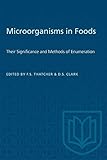Reading an Erased Code : Romantic Religion and Literary Aesthetics in France / Michel Despland.
Material type: TextSeries: HeritagePublisher: Toronto : University of Toronto Press, [1994]Copyright date: ©1994Description: 1 online resource (232 p.)Content type:
TextSeries: HeritagePublisher: Toronto : University of Toronto Press, [1994]Copyright date: ©1994Description: 1 online resource (232 p.)Content type: - 9781487572709
- 9781487575595
- 840.9/007 23
- PQ295.R4
- online - DeGruyter
| Item type | Current library | Call number | URL | Status | Notes | Barcode | |
|---|---|---|---|---|---|---|---|
 eBook
eBook
|
Biblioteca "Angelicum" Pont. Univ. S.Tommaso d'Aquino Nuvola online | online - DeGruyter (Browse shelf(Opens below)) | Online access | Not for loan (Accesso limitato) | Accesso per gli utenti autorizzati / Access for authorized users | (dgr)9781487575595 |
restricted access online access with authorization star
http://purl.org/coar/access_right/c_16ec
The end of the eighteenth century, an age of political and cultural crisis particularly in France, saw a shift in the meaning of belief. Simply put, a break in continuity occurred between the old, religious and a new, literary reading of Scripture. Michel Despland selects five writers who were caught up in this new reading of the old religious text and who came to write about religion in innovative ways: Jean-Jacques Roussean, François-René de Chateaubriand, Charles Nodier, Alfred de Vigny, and Gérard de Nerval. Their use of the autobiographical voice, and of a range of literary devices that encouraged the distanciation of readers from what they read, brought about a profound transmutation of religious writing. The old code of orthodoxy -- what was traditionally believed and socially confirmed -- was replaced with a more readable, personal text. The five writers treated by Despland helped shape a broader definition of belief, on that included individual sensibility. The works they produced are, in a sense, new religious texts. They did not just restate or reinterpret the code, but achieved a new kind of narrative, which has become dominant in the modern era and has shaped individual relationships to all codes.
Mode of access: Internet via World Wide Web.
In English.
Description based on online resource; title from PDF title page (publisher's Web site, viewed 01. Nov 2023)


